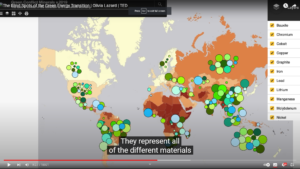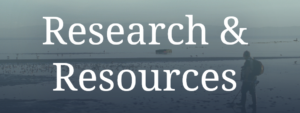I can’t keep quiet about this anymore.
I have enormous respect for the courage, commitment and sincerity of climate activists – including XR and Just Stop Oil. I have taken part in some of these actions, and I’m grateful for the way they have raised awareness and shifted the Overton Window.
But these movements, together with the big green NGO’s have focused the narrative in a way that is overly simplistic: “We just need to get off fossil fuels, and then we’ll halt dangerous climate change, and everything will be OK”. This, in my view is NOT truth-telling.
Here’s my attempt to explain why I think this.
When I first woke up to the severity of our climate predicament five years ago, I immersed myself in intensive research for months. Initially, I was pretty focused on the need to reduce emissions from greenhouse gases, in alter to slow down or halt global warming.
As I learned more, my perspective began to change. I quickly learned that the underlying cause of all our problems is Overshoot – brought about by our love affair with infinite growth.
All the others are consequences of that – such as pandemics, desertification, ocean acidification, deforestation, vulnerability of global supply chains, wars, the collapse of eco-systems and bio-diversity – as well as increasing social injustice and inequality.
We have overshot our carrying capacity. (And by the way, the more than 100 civilisations that have preceded this one all did the same thing.)
I then began to see how all the challenges we face are inter-connected – even Putin’s invasion of Ukraine is about (at least to a large extent) a resource-grab for their large mineral deposits, as well as food supplies.
If you do some digging, you’ll find that there has been massive growth in renewables over the past few years. At least so far, this hasn’t been replacing fossil fuels – it has simply added to the amount of energy we consume. This is known as the Jevons Paradox. As an analogy, think what happens when you add another lane to a motorway. This tends not to make traffic more manageable – it simply creates more traffic.
Watch this TED Talk about the blind spots of the global energy transition from just a few months ago, from the perspective of an expert on geo-politics: https://www.youtube.com/watch?v=za6dE5JrNB0

This picture shows all the minerals we need to decarbonise, and their location, and deposit size. As it happens, most of the minerals are located in countries that rank high on ‘corruption indices’, and many are considered fragile states.
Simply switching from one energy source to another isn’t going to fix much until and unless we fundamentally change the system. Alter the paradigm.
Don’t get me wrong – we must stop emitting greenhouse gases!
But are we just swapping our dependence on petro-states to dependence on China, which dominates the mineral processing globally, and those countries that dominate mineral extraction? This threatens not just international security, but planetary security.
It’s like a perfect storm in the making. Corruption, institutional and socio-economic fragility, climate disruptions and environmental plundering – all acting as a backdrop to a race to gain access to the minerals that we need in order to decarbonise!
And let’s also throw into the mix something that doesn’t get talked about nearly enough – ‘global dimming’ or the ‘aerosol masking effect’. Many scientists estimate that as we reduce greenhouse gas emissions, a global average increase in temperature of circa 1 degree will happen – and happen super-fast. Professor Ye Tao has shown through his data-gathering what happened even during the fairly modest fall in emissions that happened during the Covid lockdowns.
Humans are clever and resourceful certainly. But we have a tendency as a species to solve problems through innovation and technology, and it’s been well-researched that when our cleverness ‘works’ in solving the original problem – it very often ends up creating another problem somewhere else. This is especially true in capitalist systems where there are huge rewards on offer for those who solve the problems first, with all the perverse incentives and externalities that go along with that. We have not been, at least historically, good at systems thinking, or being rigorous about considering the downsides outside our own product, innovation or niche. See Daniel Schmachtenberger’s Consilience Project for more on this. https://consilienceproject.org/
Watch this clip from a conversation I had with Shaun Chamberlin a few months ago: (168) Renewables may be part of the solution but won’t save us without radical systemic change – YouTube
“Imagine if we suddenly found a truly ‘clean’ energy source tomorrow. Does it suddenly look like this beautiful world full of justice, sustainability and hope? No, it just allows us to grow faster, destroy habitats more quickly, and continues to devour everything in support of human existence.”
“It’s a little bit glib – but half the world’s hungry, and half the world’s depressed – and we’re destroying the future in order to sustain this system for a bit longer”.
So what am I suggesting? I’m not pretending to have ‘the answer’.
This is not a problem that can be solved – this is a complex predicament. I’m fairly sure part of the answer is changing our economic model to one that is circular.
Kate Raworth’s doughnut economics is the most well-known model here. https://doughnuteconomics.org/
Another part of the answer has to be raising awareness about the complexity, and collaborating to design a better way of doing things geo-politically.
We certainly need to up our game in terms of the way politicians and corporations and the media are incentivised, and the kinds of people we choose to lead us. To prioritise wisdom and systems-thinking, rather than short-term populism.
Another piece of the jigsaw seems to be to accept that the future will be much more hyper-local, and will require much more resilient local communities that become skilled in local adaptation, which is where I focus most of my time with HEART Community Group. https://heartcommunitygroup.org/
And of course, there’s a huge need for a shift in consciousness – a spiritual and psychological shift in our stories about who we are, and what a good life looks, sounds and feels like. My efforts feel tiny and completely inadequate – yet wholly meaningful.
How about you?
Kimberley Hare, December 2022


Spot on Kim.
To suggest – as we often hear – that all that’s needed to get off fossil fuels is ‘political will’ is misleading, when many with power understand all too well that without fossil fuels our economy would collapse.
This is the real bind that we face, and the wise approaches are not to be found on the supply-side of the energy equation (whether whether fossil fuels, renewables, nuclear or whatever..) but on the demand-side. We must reduce our energy usage.
Contrary as it is to the dominant narrative of our times, there is no law that says Nature must provide an energy source to meet any desires we may have. So what does it make sense to do in times where Nature does no such thing?
Here’s a great start, wherein the debate over energy sources comes *third* in our list of priorities:
https://leanlogic.online/lean-energy/
I fully understand why campaigners find it easier to find support for ‘let’s run our society on renewable energy!’ rather than ‘let’s recalibrate our expectations!’. But as you say, it’s not truth telling.
David Fleming had a few things to say about that too…
https://leanlogic.online/expectations/
In warm solidarity,
Shaun
ps Kate Raworth’s outstanding work is still a little reformist for my tastes. She was a guest on my first ‘Surviving the Future: Conversations for Our Times’ course in 2020, and when asked there about how her work relates to the likelihood of collapse scenarios in richer countries her response was essentially “I can’t consider that, I have children”.
As my colleague Nicole said, that felt a gut punch to her, since she considers collapse all the time precisely BECAUSE she has children.
From my perspective, I would dearly love to see the kind of reform that Kate argues for, but I’m with David Fleming’s more controversial position that reform is not the most effective place to put our energies since the system will not permit deep reform, and will end only under the weight of its own sustainability. As such the starting point of his more radical economics was what it makes sense to do, protect or prepare for in confident expectation of the failure of reform.
So while Raworth and Fleming essentially identify the same problems as those most urgently needing our attention – and so are very much on the same team – they have quite a different ‘theory of change’.
As, clearly, do you (and I’m with you on this) and Just Stop Oil, allies though we all are.
Good thinking Kim (and Shaun).
The work that Jem Bendell and I have done is relevant: see e.g. our book Deep Adaptation. Those who are concerned that considering collapse scenarios is doomist: it’s not. See e.g. Chapters 6 & 11 of that book.
We OWE it to our children to consider collapse scenarios.
But in any case, the TrAd approach is also available, if the DA approach is too difficult for some to countenance: see http://www.Transformative-Adaptation.com . TrAd aims at transformation, rather than seeking to prepare for collapse.
As Kim says, the system understates how serious the situation is.]
Thanks Kim.
I am reading this article from my home in Australia and feel inspired. I can relate to so much of what you discuss. I am only just beginning the journey of understanding that you commenced 5 years ago so I have some catching up to do! Growth is engrained within so many cultures that it is hard for most people to imagine a positive alternative. But, without a radical transformation in how we live I cannot see a way for life to continue on this planet for humans and so many other species. As you mention, community is vital and I hope that I can learn from you, and others like you, about ways in which I can support my own community for whatever lies ahead. Thank you!
I’m an analyst, not a scientist, but have a third academic paper submitted on the Ecological Footprint, the measurement base of Overshoot. The solutions on paper are so obvious. But I recall over a decade ago, one comment being ‘we can’t talk about that’ — income being a solid proxy for footprint.
The problem, is, beliefs and values. On these, people make decisions. We are a maladaptive species states Professor William Rees, originator of the EF.
Knowing few will awaken from facts and figures, I’ve taken on a near future speculation series, the first book length piece Pinatubo II set in 2027. Readers comments on Amazon assist with bringing attention to this.
Our Near Future
https://climaterealityseries.wordpress.com/
Taking a shot at forming a practical on the ground non-overshoot community too.
One Planet Valley.
https://ecovillage.org/project/one-planet-valley/
Onwards guys,
Les
Professor David Keith’s research, my primary source for Pinatubo II, describes a cheap low tech easy for any country to pick up on geoengineering method. Much more likely to happen, we being humans, than the proposed MEERs idea. — Les